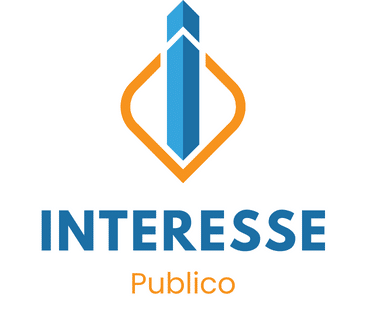What Are the Best Strategies for Real Estate Branding in the Digital Age?

In today’s technologically advanced world, digital marketing has become an essential part of every business’s strategy. This holds true particularly for the real estate sector, where online presence is a necessity to capture potential buyers and sell properties faster. The rise of digital platforms has completely transformed the way real estate businesses operate, making it crucial for them to adapt and stay competitive. In this article, we will delve into the most effective strategies for real estate branding in the digital age.
1. Leveraging Social Media Platforms
In the age of social media, it is paramount for real estate businesses to maintain an active presence on popular platforms such as Facebook, Instagram, Twitter, and LinkedIn. These networks provide a direct line of communication to a vast audience, offering an extraordinary opportunity for businesses to showcase their properties, share relevant content, and engage with potential buyers.
Also read : How to Evaluate the Financial Viability of Green Retrofitting Projects?
From promoting open houses to sharing testimonials from happy clients, social media is a powerful tool for real estate marketing. It allows businesses to cultivate a brand image and establish a sense of trust with their audience. Moreover, the targeting capabilities of social media advertising make it possible to reach specific demographics, ensuring that your content is seen by those most likely to be interested in your services.
2. Building a Professional Real Estate Website
Your website serves as the digital storefront of your real estate business. Therefore, it’s important for it to be visually appealing, easy to navigate, and filled with useful information for prospective clients. A strong online presence begins with a well-designed website that effectively communicates your brand and its offerings.
Also to see : How to Implement Passive House Standards in Large Residential Developments?
Website development should be focused on creating a user-friendly interface, complete with high-resolution property photos, detailed descriptions, and easy-to-find contact information. Additionally, implementing search engine optimization (SEO) strategies can significantly improve your site’s visibility on search engine result pages, potentially driving more traffic and leads to your business.
3. Utilizing Content Marketing
Content is the cornerstone of digital marketing. It plays a crucial role in attracting and retaining audience’s interest, improving website SEO, and establishing your real estate brand as an authority in the industry. From blog posts and ebooks to infographics and videos, the type of content you produce should be tailored to your target audience’s interests and needs.
Sharing insights about the local real estate market, answering common buyer questions, or offering tips on home improvements not only provides value to your audience, but also positions your business as a trusted resource. Remember, quality trumps quantity. It is better to publish less frequently but ensure that your content is high-quality, informative, and engaging.
4. Capitalizing on Email Marketing
Despite the rise of social media, email remains a highly effective digital marketing channel, especially for real estate businesses. It provides a direct and personal way to stay top-of-mind with your audience, share new property listings, and nurture leads.
Successful email marketing starts with building a solid subscriber list. You can encourage website visitors to sign up for your newsletter by offering valuable content such as a free home buyer’s guide or market report. Regularly sending engaging and relevant emails can significantly improve buyer retention and conversion rates.
5. Embracing Virtual Reality
As technology continues to evolve, so must your real estate marketing strategies. Virtual reality (VR) is becoming increasingly popular in the industry, as it allows buyers to take a virtual tour of a property from the comfort of their own homes.
While a picture may be worth a thousand words, a virtual tour can be worth a thousand visits. Offering virtual tours not only differentiates your brand from competitors, but it also caters to the modern buyer’s demand for a quick and convenient home buying experience.
In the rapidly changing world of real estate, staying ahead of the curve requires a comprehensive digital marketing strategy. By leveraging social media, building a professional website, utilizing content marketing, capitalizing on email marketing, and embracing innovative technologies like VR, your business can thrive in the digital age. Remember, the key to successful branding lies in consistently delivering value to your audience and providing an exceptional customer experience.
6. Boosting Local SEO Efforts
Visibility on search engines plays a significant part in real estate digital marketing. A solid local SEO strategy will ensure that your website ranks high in local search results, thereby increasing the likelihood of attracting potential buyers in your area. Local SEO involves optimizing your business’s online presence to attract more business from relevant local searches.
Your address, phone number, and business name should appear consistently across all online directories, including Google My Business, Yelp, and Bing Places. Moreover, embedding a Google Map on your site can further boost local SEO. It’s also beneficial to encourage satisfied clients to leave reviews on your Google My Business page, as positive feedback can significantly enhance your brand’s credibility.
In addition, create content focusing on local keywords and topics. This could be blog posts about neighborhood amenities, local market trends, or upcoming community events. These types of content will attract local traffic and establish your business as a trusted local expert.
7. Engaging in Influencer Marketing
Influencer marketing is a powerful tool for boosting brand awareness and credibility. It involves partnering with influencers – individuals who have a considerable social media following and are seen as experts within their niche. For real estate, this could be a local celebrity, a well-known interior designer, or a popular real estate blogger.
An effective influencer marketing campaign can drastically increase your brand’s visibility. It works by leveraging the influencer’s audience, ultimately driving more traffic to your website and potentially increasing sales. This strategy is particularly beneficial for real estate businesses, as it can significantly enhance a property’s perceived value and desirability.
Remember, influencer marketing is not just about reaching a larger audience, but reaching the right audience. Therefore, it is essential to choose an influencer whose audience aligns with your target market.
Conclusion
In the digital age, traditional marketing methods may not be sufficient to remain competitive in the real estate industry. By embracing digital marketing strategies such as social media management, website development, content marketing, email marketing, virtual tours, local SEO, and influencer marketing, real estate businesses can navigate the rapidly changing landscape and effectively reach their target audience.
Remember, the ultimate goal of your digital marketing strategy should be to provide exceptional value to potential buyers and create an excellent customer experience. Consistently delivering on this promise will enhance your brand’s reputation, generate more leads, and ultimately drive more sales. As technology continues to advance and buyer behaviors evolve, be prepared to adapt your marketing strategies accordingly to stay ahead of the curve.
